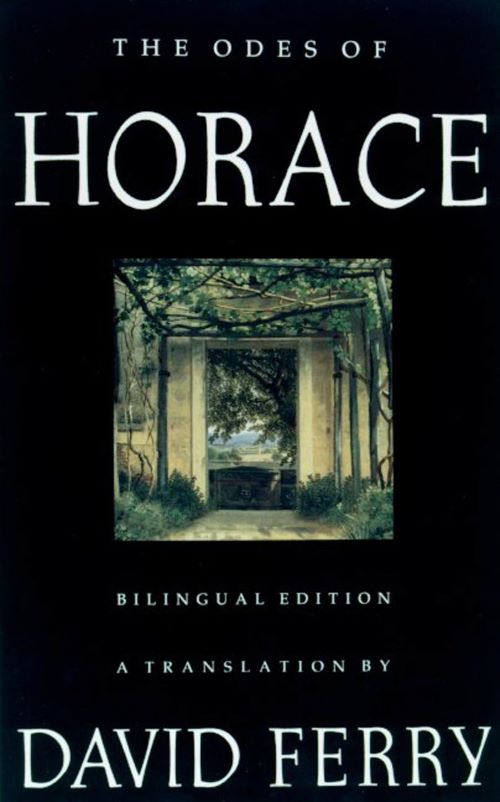A poem can only be as old as the lifetime of its reader: like a musical score, or the script of a play, it isn’t pages on a dusty shelf, but the experience of it happening, then the memory. A poem may be more accessible than a symphony or play, and its witnessing more private, but it will never be the same experience again, readers being, as they are, minds of place in time.
The poetry of Antiquity, then, has no problem with originality or relevance—it can be younger than the freshest spark from Yale. In a sense, we are less removed from it than, for example, the 18th Century verse it so inspired because its tradition is often completely new to the reader, being completely unknown, whereas the hordes of rhyming couplets out of Augustan England may still be vying for attention in the music of contemporary poets who, inevitably, have been taught it. Ferry’s translations of Horace’s Odes use that understanding to glide right by the meters and designs that academics use to justify a dull translation, and opt instead for the less literally-minded ideal of a good poem.
See Mount Soracte shining in the snow.
See how the laboring overladen trees
Can scarcely bear their burdens any longer.
This first stanza of Ode i.9 translated by Ferry has a simplicity that’s established by a casual tone but reinforced by stable lines and subtle formality. His rendering of the address (“See Mount Soracte”) isn’t exactly conversational (we might say, “look at Mount Soracte”), but balances a desired gravity with the effortlessness of conversational language which would not, alone, carry the same force. He also uses that best of Milton’s art which is to smash adjectives together for a rhetorical, prolonging power: “laboring overladen trees” (Milton in a lushness over Eve speaks of “sweet reluctant amorous delay”). The syllables mesh so well a comma is unneeded, and its ease brings no attention beyond the success of its immediacy.
Once the poem identifies its addressee, and offers its Horatian advice (which is always to worry less and drink more), Ferry turns the enjambed, imperative sentences into a Whitmanian incantation of breezy English language.
O Thaliarchus, as for everything else,
Forget tomorrow. Leave it up to the gods.
Once the gods have decided, the winds at sea
Will quiet down, and the sea will quiet down,
And these cypresses and old ash trees will shake
In the storm no longer.
Ferry has been reminded by Horace’s seaside images of Whitman’s Paumonok elegies and their painless use of many words to make it feel like less: he smoothes out Horace’s inevitable economy of Latin into a more King James language of Biblical force, where longer sentences result in further power. The idea is that the voice of a friend telling you not to worry is dear advice, but the voice of scripture saying the same thing is mandatory comfort.
That quality of careful maximalism will give Ferry’s invented ending its swirling, festival air. Forgoing Horace’s original, beautiful as it is, of a sweet girl laughing in a secret corner, Ferry spins out a palindrome of cadences in his final tercet:
While you’re still young,
And while morose old age is far away,
There’s love, there are parties, there’s dancing and there’s music,
There are young people out in the city squares together
As evening comes on, there are whispers of lovers, there’s laughter.
They are phrases of one beat, two beats, three beats, then a long, enjambed phrase for the center, then three beats, and a final, single phrase, whose plainness is its own kind of surprise: “there’s laughter.”
The genius for a simple clarity is what makes all of Ferry’s Horace and Virgil so commendable, and his verse is proof as well that “simple clarity” is not “economy,” nor less and stranger language. That he adds a word or removes a god is hardly worth attacking when the former makes for grace and the latter is a name we neither cared about nor said correctly. Instead, like the King James translators, he understands that another language is another material, and one cannot build a wooden house from marble. The attempt will last forever.
Ferry’s translations of Virgil’s Eclogues and Georgics are equally successful, bettering their forerunner in Day Lewis’ translations, and help to clarify the lyrical quality of that prime Roman poet who, if approached through Dryden’s translations, one might mistake as being old.




